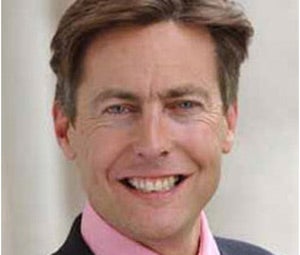Bradshaw defends regional news plan

Your support helps us to tell the story
From reproductive rights to climate change to Big Tech, The Independent is on the ground when the story is developing. Whether it's investigating the financials of Elon Musk's pro-Trump PAC or producing our latest documentary, 'The A Word', which shines a light on the American women fighting for reproductive rights, we know how important it is to parse out the facts from the messaging.
At such a critical moment in US history, we need reporters on the ground. Your donation allows us to keep sending journalists to speak to both sides of the story.
The Independent is trusted by Americans across the entire political spectrum. And unlike many other quality news outlets, we choose not to lock Americans out of our reporting and analysis with paywalls. We believe quality journalism should be available to everyone, paid for by those who can afford it.
Your support makes all the difference.Proposals to use part of the television licence fee to fund a replacement ITV regional news service are expected to be defended today by Culture Secretary Ben Bradshaw.
Mr Bradshaw's first major speech on broadcasting since taking the role comes as his department released research suggesting the plans have public backing.
The former BBC journalist will deliver the keynote speech at the Royal Television Society's Cambridge Convention.
The study, released yesterday, assesses public opinion on plans to use a portion of licence fee money to help sustain public service programmes.
The Government's Digital Britain report published earlier this year suggested using 3.5 per cent of the fee - about £130 million a year - to fund ITV local news and other important, but less profitable, shows on non-BBC channels.
The Department of Culture, Media and Sport poll of 2,024 UK adults found 65 per cent felt that after 2013 a small part of the licence fee should be used to support regional news on other channels, with most of the fee still going to the BBC.
It also found 24 per cent felt the fee should be used only for the BBC.
The survey said 73 per cent of people thought it was important to have a choice of TV channels providing regional news.
According to the poll, 48 per cent of respondents favoured part of the licence fee being used for certain types of programmes on other channels, such as news, children's shows and dramas, while 35 per cent said it should be reserved for the BBC.
A row over the licence fee between BBC chairman Sir Michael Lyons and Mr Bradshaw followed the publication of the Government's plans.
Sir Michael hit back at claims by Mr Bradshaw, who blamed the BBC for creating "almost a feeling of despair" among staff by opposing plans to "top slice" the licence fee.
He said it was "surprising that a secretary of state who has just started a public consultation exercise should give the impression that he has already made his mind up so firmly".
Government sources said Mr Bradshaw is expected to reiterate his support for the BBC but also issue some challenges to the corporation.
Shadow culture secretary Jeremy Hunt said of the poll: "The Government is clearly getting desperate when it starts using polling like this to justify its position.
"They have immediately assumed that licence fee payers want their money to be spent on something when every other piece of research shows that if there is spare money at the BBC viewers want it back.
"Despite recent rhetoric the Government is still clinging to the idea that they have to spend taxpayers' money to solve a problem."
Veteran programme-maker Phil Redmond will also address the broadcasting convention, dubbed Riding Out The Storm, today.
Redmond, whose credits include Grange Hill, Brookside, and Hollyoaks, is expected to give a hard-hitting lecture, arguing that British broadcasters are not catering for the 11- to 15-year-old market.
"They are just playing it safe. It is all about a disconnect with viewers," he told this week's Observer newspaper.
Redmond will deliver the Huw Wheldon Memorial Lecture, which has previously been given by Sir David Attenborough, scriptwriter Paul Abbott and historian Simon Schama.
He told the newspaper: "The broadcasters are concentrating on making shows for children who are under 11.
"They stick with what is safe and easy and, in the case of the BBC, it fits with their family-viewing policy.
"Anything shown before 10pm has to be suitable for everyone, so you get children watching Top Gear instead of programmes made for them."
The convention has been planned by BBC director general Mark Thompson and will explore how British media can adapt to falling advertising revenues and an explosion of digital channels.
Join our commenting forum
Join thought-provoking conversations, follow other Independent readers and see their replies
Comments